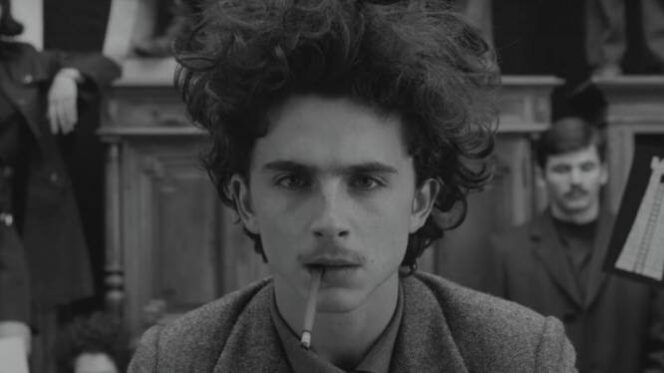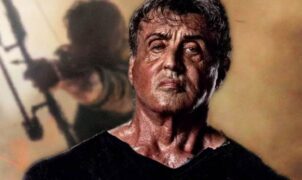MOVIE REVIEW – Wes Anderson is arguably the king of kitschy weirdness, a filmmaker of the highest order in the field of highly mannered and demanding filmmaking.
Anderson’s distinctive style can no longer be denied; his films are industrious miniature dioramas, crammed with references, text and beloved character actors, so much so that the eye can barely register it all. But his latest cinematic curiosity, The French Dispatch, proves that sometimes too much of a good thing can be a self-serving, staged and, in places, downright irritating bore.
It could be a parody of his own
The French Dispatch could easily be a parody of a Wes Anderson film because it is too Andersonian for its own good. It features many of the usual repertoires of actors, including Bill Murray, Owen Wilson, Jason Schwartzman, Edward Norton, Tilda Swinton, Saoirse Ronan, Tony Revolori, Adrien Brody, Frances McDormand, Léa Seydoux and Wally Wolodarsky, as well as some new faces in Timothée Chalamet, Benicio del Toro, Elisabeth Moss and Jeffrey Wright. Anderson has packed the film with such a level of visual information, and so much work is required to make out every detail that the eye and brain may refuse to take on the task.
The film is based on a series of episodic vignettes, each depicting a magazine article. On a macro level, The French Edition pays homage to the New Yorker magazine, the title referring to a fictional publication, a supplement to the Liberty Evening Sun in Kansas City, a pet project of the publisher’s son Arthur Howitzer Jr (Bill Murray). Based in the fictional French village of Ennui-sur-Blasé (yes, that’s the name), a colourful cavalcade of journalists, critics and correspondents make up the front page of the French Dispatch.
Story broken down into articles
Each chapter follows a piece of writing: as a bicycling journalist, Wilson offers a description of Ennui’s “couleur locale”; as an art critic, Swinton offers a long lecture on an artist-turned-prisoner (Del Toro) who, thanks to his guardian lover and model (Seydoux), becomes a star of modern abstract expressionism; and an imprisoned agent (Brody). McDormand is a political reporter covering a student-led protest movement (Chalamet), which allows Anderson to play a Parisian pop-fantasy set in the early films of the Nouvelle Vague and Jean-Luc Godard. In the final chapter, the food critic (Wright) narrates the kidnapping plot he’s been thrust into on a talk show, with a stylistic flair akin to a Jean Renoir-inspired WWII French spy thriller, plus an animated movie car chase.
Disappointment
It’s hard to criticise a film and filmmaker who, with seemingly pure intentions, is trying to write a charming love letter to the golden age of the (generously funded) print press. But the stylistic traits that make up Anderson’s oft-imitated but never-repeated aesthetic have reached the point of actively working against him in the case of The French Edition. If it has something to say (and it’s unclear what that might be), it obscures the message and, worse, the emotional connection to the film.
This French Dispatch is typical of the kind of a disappointment that only remittances from real magazines accumulate.
-BadSector-
The French Dispatch
Direction - 4.8
Acting - 6.8
Story - 4.8
Visuals/music - 5.6
Hangulat - 5.6
5.5
AVERAGE
It's hard to criticise a film and filmmaker who, with seemingly pure intentions, is trying to write a charming love letter to the golden age of the (generously funded) print press. But the stylistic traits that make up Anderson's oft-imitated but never-repeated aesthetic have reached the point of actively working against him in the case of The French Edition. If it has something to say (and it's unclear what that might be), it obscures the message and, worse, the emotional connection to the film. This The French Edition is typical of the kind of a disappointment that only remittances from real magazines accumulate.


















Leave a Reply